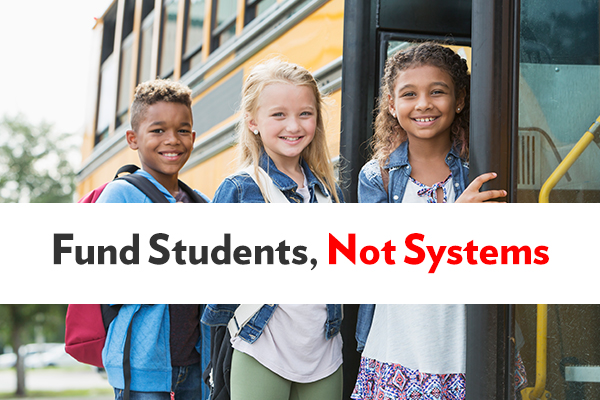Media

3 Charter School Facts Gov. Wolf Hopes You Won’t Notice
Pennsylvania charter schools are “wildly ineffective.” They produce “abysmal results.” They “aren’t moving the needle” on test results.
If you believe the detractors, charter schools are worse than pointless. They’re harmful.
As absurd as these attacks might sound, anti-charter activists have started claiming their polemics are based in solid science. They claim the recent study by Stanford University’s Center for Research on Education Outcomes (CREDO) proves that charter schools are failing, and harm public schools.
Governor Wolf has taken advantage of the uproar to propose a series of charter “reforms” that would cut funding, ban new schools, and cap enrollment. But almost every pundit and politician has misrepresented the CREDO study and ignored the positive impact charter schools have for vulnerable students.
Here are three takeaways from the data showing why charter schools are necessary and often wonderful options for Pennsylvania students.
More time in charter schools leads to better performance.
An exciting finding from CREDO that wasn’t widely reported is that student performance improves the longer students stay in charter schools. While first-year charter students had weaker growth than the average district school student, by the second and third year those gaps disappeared. This is especially significant since charter students are more likely to be low-income and minority—in other words, they are the students whom district schools are failing.
Many charter schools outperform their district school counterparts.
It’s misleading to say, as some interpreters of the CREDO data have, that most Pennsylvania charter schools are underperforming. Charter school outcomes should be evaluated by looking at their context: the district school students otherwise would have attended. As the table below shows, charter schools are performing as well as or better than most alternative district schools.
Chart: Charter School vs. TPS
This is significant since, as the report notes, it illustrates “how the academic quality of a charter school compares to the quality of traditional public schools which students in that charter school would have potentially attended if they had not attended a charter school.”
As the table below shows, low-income and minority students make up the largest percentage of charter enrollment. Wolf’s reforms would grossly disadvantage these students, who often already face a deck stacked against them.
Chart: District and Charter Students
District schools are failing black and Hispanic students.
Charter opponents want to limit options for students and parents, but this ultimately traps minorities in underperforming schools. The CREDO study severely critiques these school districts—so it doesn’t make sense to force minority families into bad situations.
But almost every pundit and politician has misrepresented the CREDO study and ignored the positive impact charter schools have for vulnerable students.
The study found black students in district schools lose the equivalent of 112 days in reading and 106 days of math compared to white students in district schools.1 The experience is similar for Hispanic students in district school, who experience 83 fewer days of learning in reading and 89 fewer days for math compared to their white counterparts.
Charter schools, meanwhile, are yielding gains for black and Hispanic students.
Stanford found that, in a normal school year, black students who attend charter schools experience an additional 24 days of learning in reading annually compared to their district peers—a figure that increases to 35 days for students in poverty. Likewise, Hispanic students in poverty gain 24 days of reading instruction. In 13 years at a charter school, those students could gain nearly a years’ worth of additional learning.
Chart: Reading Performance in Charter Schools
If the governor does not want to be labeled the Big Bad Wolf, he should work with the charter school community on real reforms. A group of House Bills (HB 355, HB 356, HB 357, and HB 358) aimed at reforming Pennsylvania’s charter school law await action in the Senate. These bills would strengthen ethics requirements for charter school operators, create a transparent charter school application process, and more.
In the story of the Three Little Pigs, the Big Bad Wolf was unable to blow down the house made of bricks. Wolf and his fellow charter school opponents can huff and puff and distort the Stanford study, but further examination shows charter schools will stand up as providing hope and opportunity to thousands of families in Pennsylvania.
—————
[1] CREDO translates the scientific estimates of learning gains into estimated days of learning based on the foundation of a 180-day school year. Please see the report for a more detailed explanation. https://credo.stanford.edu/sites/g/files/sbiybj6481/f/2019_pa_state_report_final_06052019.pdf